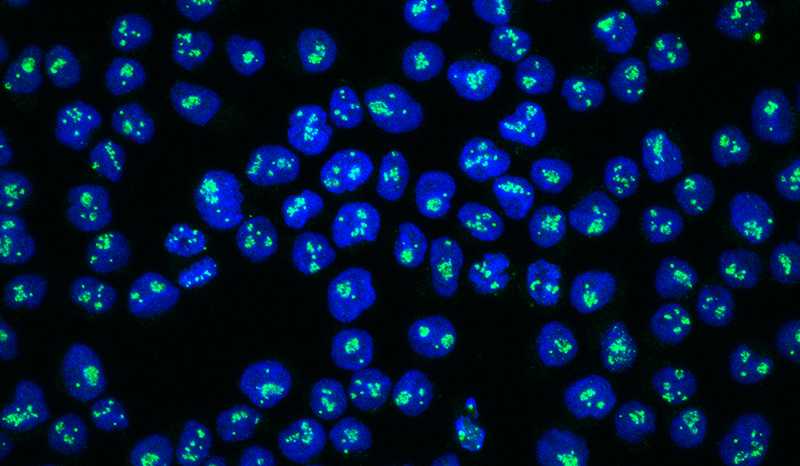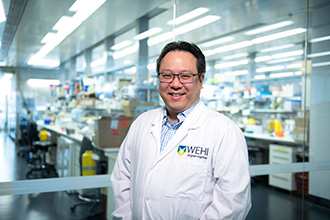Morel-Kopp M-C, Levade M, Beutler L, Chen Q, Othman J, Steffen P, McKay MJ, Molloy MP, Selvadurai MV, Liang HP, Whittaker S, van der Wal DE, Gabrielli S, Hamilton JR, Chen VM, Ng AP, Ward CM, Stevenson WS. GFI1B is a metabolic regulator that exerts pleiotropic effects on platelet function. Journal of Thrombosis and Haemostasis. 2025;:10.1016/j.jtha.2025.06.021
Collett S, Earnest L, Edeling MA, Yap AHY, Montoya JC, Attard C, Di Rago L, Farley A, Ng AP, Monagle P, Torresi J. Adenovirus vectors can infect mouse megakaryocytes – implications for vaccine-induced thrombosis/thrombocytopenia. Research and Practice in Thrombosis and Haemostasis. 2025;9(4):10.1016/j.rpth.2025.102909
Iland HJ, Reynolds J, Boddy AV, Schultz HB, Khoo L, Fleming S, Lane SW, Weber N, Gasiorowski R, Armytage T, Harrup R, Watson A-M, Tan P, Filshie R, Kwok F, Stevenson W, Yuen S, Ng AP, Rowley L, Marlton P, Wei AH, Group ALAL. ALLG APML5: bioavailability and safety of oral arsenic trioxide assessed during consolidation therapy for APL. Blood Advances. 2025;9(6):10.1182/bloodadvances.2024015397
Nie J, Ng AP, Nutt SL. Post-translational control of B lineage commitment. Nature Immunology. 2024;25(12):10.1038/s41590-024-02019-0
Anderton H, Bandala-Sanchez E, Simpson DS, Rickard JA, Ng AP, Di Rago L, Hall C, Vince JE, Silke J, Liccardi G, Feltham R. Correction to: RIPK1 prevents TRADD-driven, but TNFR1 independent, apoptosis during development. Cell Death & Differentiation. 2024;31(12):10.1038/s41418-024-01401-7
Kremyanskaya M, Hoffman R, Chew LP, Sharif A, Semov B, Kori AN, Sia H, Grove CS, Ng AP, Kalro A, Raman I, Kasinathan G, Oduwole O, Gomez-Palou M, Fok H, Romano S, Rambaran C, Martinez A. Initial Results from a Phase 1/2 Study Evaluating Divesiran, a Novel Galnac Conjugated siRNA, in Patients with Polycythemia Vera (SANRECO). Blood. 2024;144(Supplement 1):10.1182/blood-2024-205854
Pitiyarachchi O, King MT, Gangatharan S, Osborn M, Ng AP, Fleming S, Fedele P, Trahair TN, Casey J, Mapp S, Cheung CC, Armytage T, McCloud P, Button P, Rowley L, Larsen SR, Presgrave P, Kwan J, Bennett S, Fong CY, Dalla-Pozza L, Greenwood M. Health-Related Quality of Life in Adolescents and Young Adults Treated with Blinatumomab Consolidation for CD19+ Ph-Negative Acute Lymphoblastic Leukemia in the Australasian Lymphoma and Leukaemia Group (ALLG) ALL09 “Sublime” Study. Blood. 2024;144(Supplement 1):10.1182/blood-2024-209043
Ng AP. Catch ’em all! CDK9’s RUNX1 mega evolution. Blood. 2024;144(17):10.1182/blood.2024026377
Ng AP. Hit the road JAK, don’t P-STAT, stem more!. Blood. 2024;144(7):10.1182/blood.2024025441
Vu M, Degeling K, Ryland GL, Hofmann O, Ng AP, Westerman D, IJzerman MJ. Economic Impact of Whole Genome Sequencing and Whole Transcriptome Sequencing Versus Routine Diagnostic Molecular Testing to Stratify Patients with B-Cell Acute Lymphoblastic Leukemia. Journal of Molecular Diagnostics. 2024;26(8):10.1016/j.jmoldx.2024.04.006




